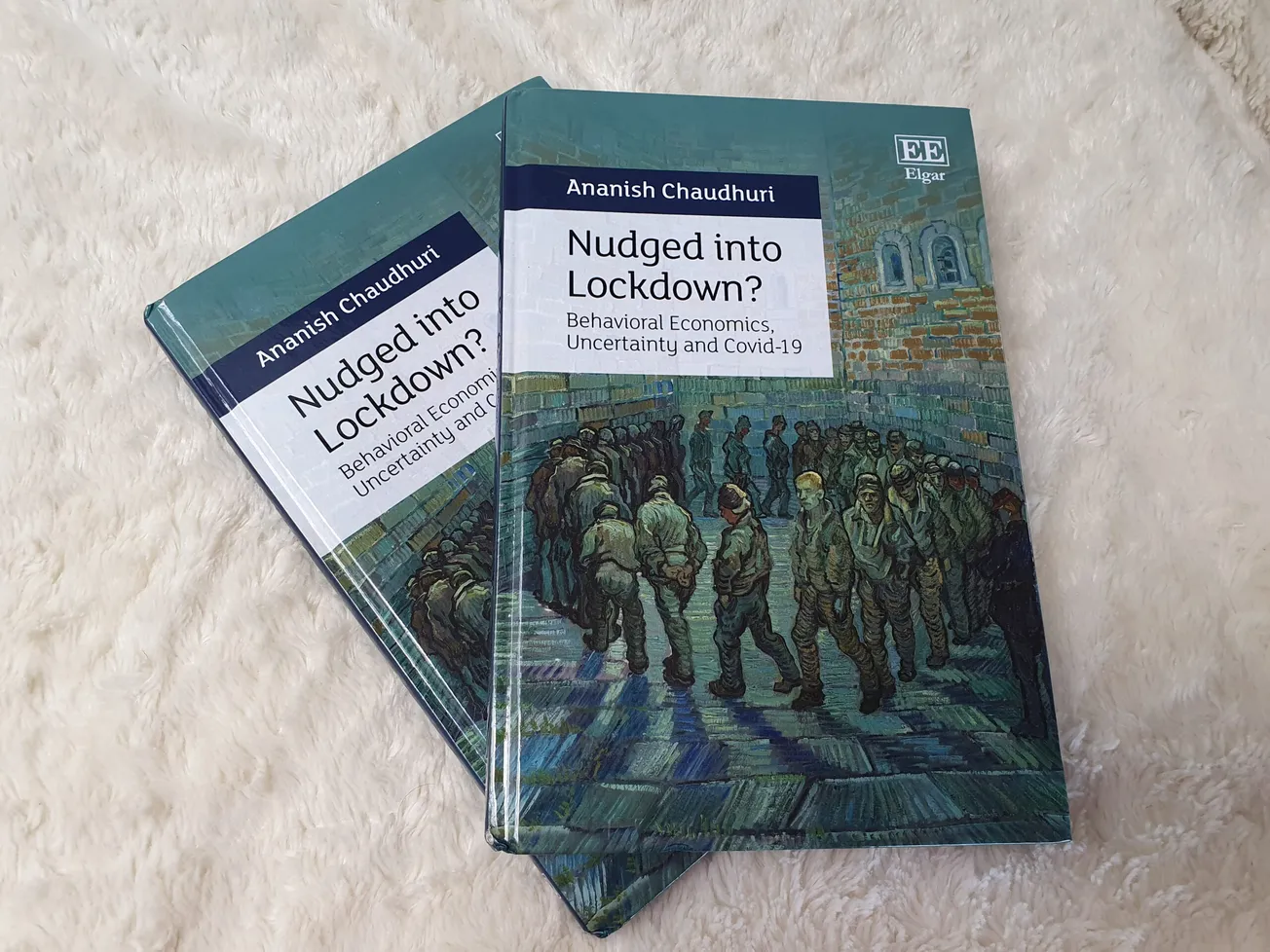Table of Contents
Ananish Chaudhuri
Ananish Chaudhuri, PhD. is Professor of Experimental Economics at the University of Auckland. He is the author of a new book “Nudged into lockdown? Behavioral Economics, Uncertainty and Covid-19.” You can read more about Ananish Chaudhuri’s work here.
Ashley Bloomfield was Knighted recently for the role he played in New Zealand’s Covid-19 response. His response relied primarily on the use of extensive and stringent lockdowns.
But were our lockdowns worth it and was our covid response appropriate? A Royal Commission of Inquiry is currently underway to establish lessons learned from the country’s Covid-19 response.
The inquiry should take account of the myriad other social and economic costs that have been inflicted as a result of our response, particularly our stringent and lengthy lockdowns.
The fact that many of our public officials insisted on viewing the pandemic as only an epidemiological crisis created a social and economic crisis as a result.
The two key arguments behind the decision to lockdown were the desire to protect health services, and to save lives.
First, there is little evidence to suggest that our health system has been ‘protected’. Our emergency departments are under severe stress and hospital waiting lists are getting longer.
Second, far from saving lives, data from twenty-four European countries show that nations that imposed more stringent lockdowns ended up suffering more deaths overall than otherwise. John Gibson of Waikato University finds that New Zealand has suffered excess deaths as well. When we devote all our resources to fighting one disease, we are left with fewer resources for fighting others.
Gibson argues further that the economic downturn caused by our Covid-19 response implies a life expectancy reduction equivalent to two million fewer expected life years for all Kiwis combined.
Given its lack of land borders and low population density for large parts of the country, New Zealand’s pandemic risk was much lower than initially presupposed. Our zero Covid mindset resulting in extended lockdowns have been economically costly and have led to significant social divisions.
When it comes to public policy, a common metric is the Quality-of-Life Years (QALY) saved on a per dollar basis. Analysis undertaken by the Commission’s Chair, Professor Tony Blakely, suggests that elimination (via lockdowns) may work from a health system perspective in high-income countries, but only work from a societal perspective, if a QALY is valued at over US$240,000.
Lockdowns have inflicted enormous collateral damage, including psychological trauma and increased truancy rates. Children from lower decile areas deprived of quality education will struggle to catch up. Money printing to keep interest rates low during the pandemic has contributed to the current cost of living crisis and a transfer of wealth from blue-collar workers to asset rich white-collar ones. All of this will exacerbate inequality.
According to legal experts, the lockdowns imposed on us were “… the most extensive restrictions on New Zealanders’ lives seen for at least 70 years; perhaps ever.”
The first nine days of our April 2020 lockdown were declared “unlawful” by the High Court; so were parts of the vaccine mandate. New Zealand citizens were denied the right to return to their own country (enshrined in Article 13 of the Universal Declaration of Human Rights) or forced to pay hefty sums for the “privilege”. Not surprisingly, in yet another rebuke for our government, the High Court told it that the managed isolation and quarantine system had “overstepped the mark.”
US researchers suggest that lockdowns reflect views prevalent more than half a century ago when we knew far less about the epidemiology of infectious diseases, and when there was far less travel. The authors of this study included the renowned epidemiologist Donald Henderson, who directed the international effort to eradicate smallpox.
Fairly early on in 2020 it became clear that the lockdowns had little impact on Covid-19 mortality. This was true if one compared across countries at a point in time, across counties in the United States and within the same country over a span of time.
It was also obvious by the end of 2020, that the aggregate costs of lockdowns exceeded any benefits by large magnitudes. Leading UK researcher David Miles shows that for the UK, there are no situations where the benefits of lockdowns outweigh the costs. Research undertaken at Waikato University and by the Productivity Commission reach similar conclusions for New Zealand. Doug Allen of Simon Fraser University has referred to lockdowns as a huge public policy failure.

The New York Times recently published a survey of pandemic recommendations from experts considering the possibility of another hypothetical outbreak that was more transmissible and more deadly than the coronavirus. One commentator pointed out: “…in nearly every case even those taking the more aggressive side of the argument endorsed mitigation measures that were no stronger and often weaker or more caveated than those that had been put in place in 2020.”
It is important the Royal Commission broaden its vision beyond saving Covid-19 lives and take account of the myriad other social and economic costs that have been inflicted. We need a report that takes an unflinching look at the trade-offs faced and the choices made. The findings will be of vital importance not only in terms of lessons for future pandemics, but also in deciding how to balance public health concerns and fundamental civil rights. History will be watching.









